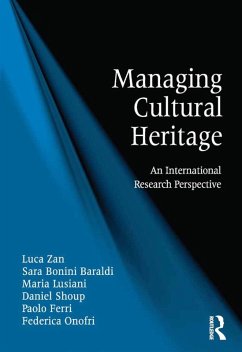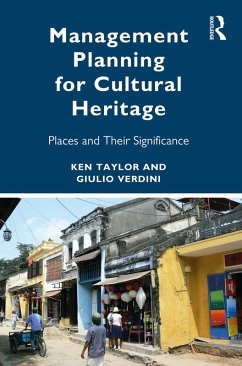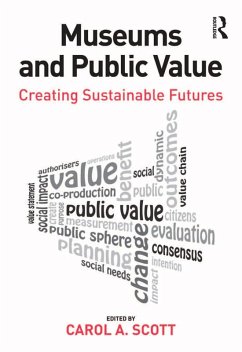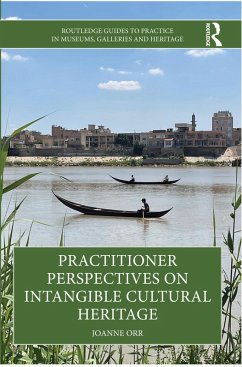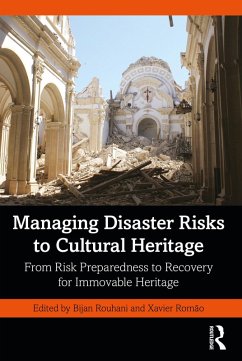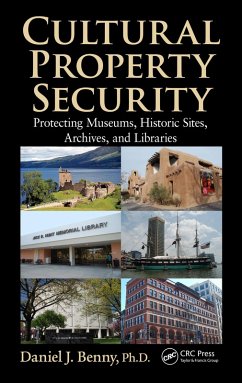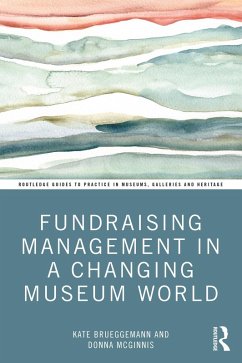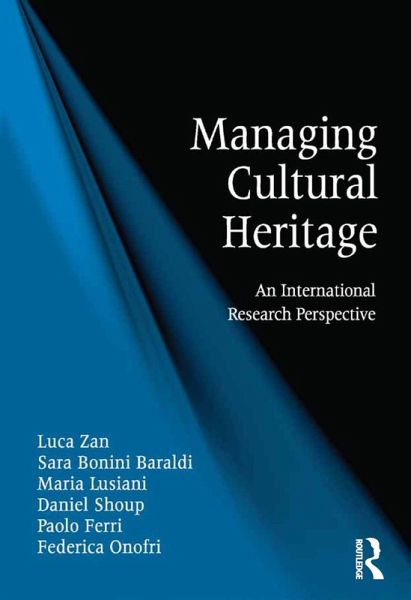
Managing Cultural Heritage (eBook, PDF)
An International Research Perspective
Versandkostenfrei!
Sofort per Download lieferbar
38,95 €
inkl. MwSt.
Weitere Ausgaben:

PAYBACK Punkte
19 °P sammeln!
Since the 1990s, heritage studies has emerged as a distinct academic field, and practices and rhetoric drawn from mainstream corporate management and strategic planning have become widespread. Based on extensive research, this book is an in-depth investigation of management practices rather than policies, based on a variety of case studies from around the world.The authors take the issue of management in heritage seriously, but also take into account the role of other disciplines within heritage organizations. In particular, they focus on sustainability in terms of financial resources, human r...
Since the 1990s, heritage studies has emerged as a distinct academic field, and practices and rhetoric drawn from mainstream corporate management and strategic planning have become widespread. Based on extensive research, this book is an in-depth investigation of management practices rather than policies, based on a variety of case studies from around the world.
The authors take the issue of management in heritage seriously, but also take into account the role of other disciplines within heritage organizations. In particular, they focus on sustainability in terms of financial resources, human resources, knowledge management, and the relationship with the audience and communities of scholars. The book opens with a methodological introduction that discusses what it means to do research on management, and why international comparative research is essential. The body of the text engages issues of heritage and management through five distinct analytical lenses: management and the process of change, institutional settings and business models, change and planning, the Heritage Chain, and the space between policy and practice. Each of these five sections includes a chapter introducing the analytical framework and possible implications, followed by case histories from China, Italy, Malta, Turkey, and Peru. The book ends with a chapter of concluding reflections.
The authors take the issue of management in heritage seriously, but also take into account the role of other disciplines within heritage organizations. In particular, they focus on sustainability in terms of financial resources, human resources, knowledge management, and the relationship with the audience and communities of scholars. The book opens with a methodological introduction that discusses what it means to do research on management, and why international comparative research is essential. The body of the text engages issues of heritage and management through five distinct analytical lenses: management and the process of change, institutional settings and business models, change and planning, the Heritage Chain, and the space between policy and practice. Each of these five sections includes a chapter introducing the analytical framework and possible implications, followed by case histories from China, Italy, Malta, Turkey, and Peru. The book ends with a chapter of concluding reflections.
Dieser Download kann aus rechtlichen Gründen nur mit Rechnungsadresse in A, B, BG, CY, CZ, D, DK, EW, E, FIN, F, GR, HR, H, IRL, I, LT, L, LR, M, NL, PL, P, R, S, SLO, SK ausgeliefert werden.




